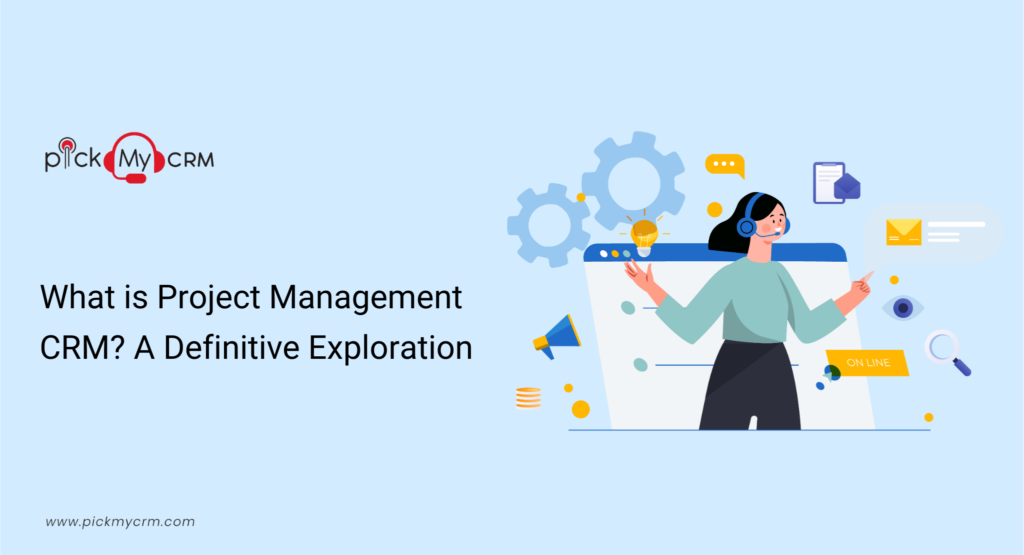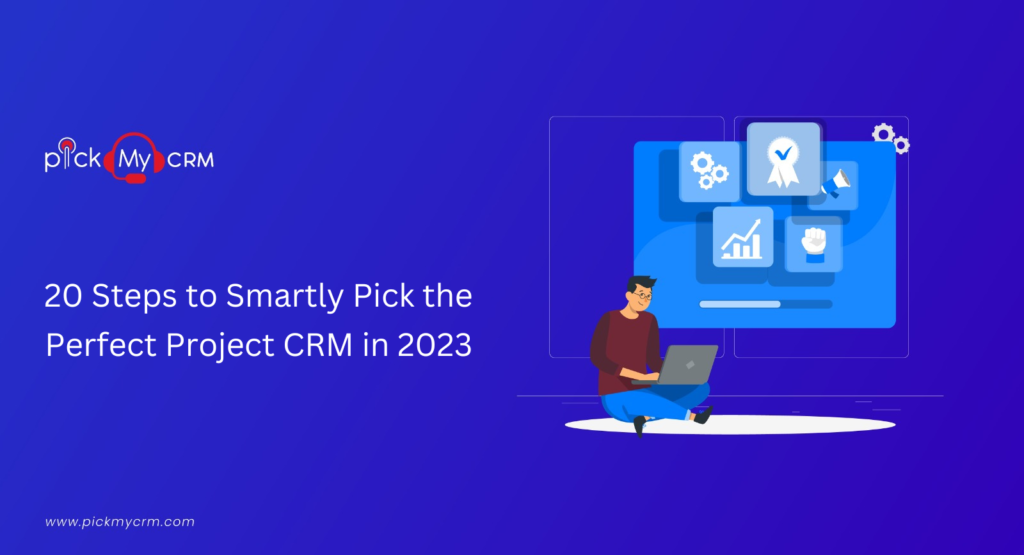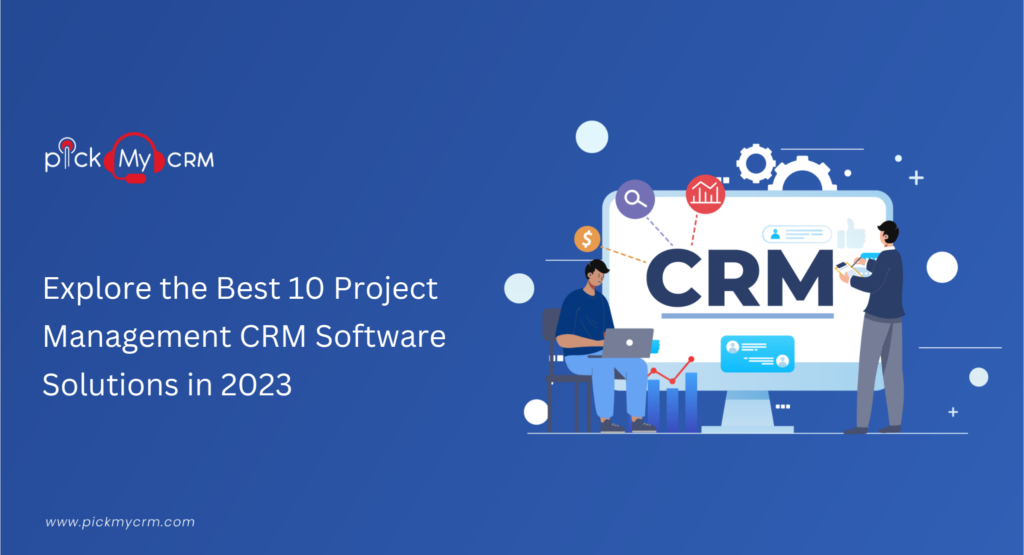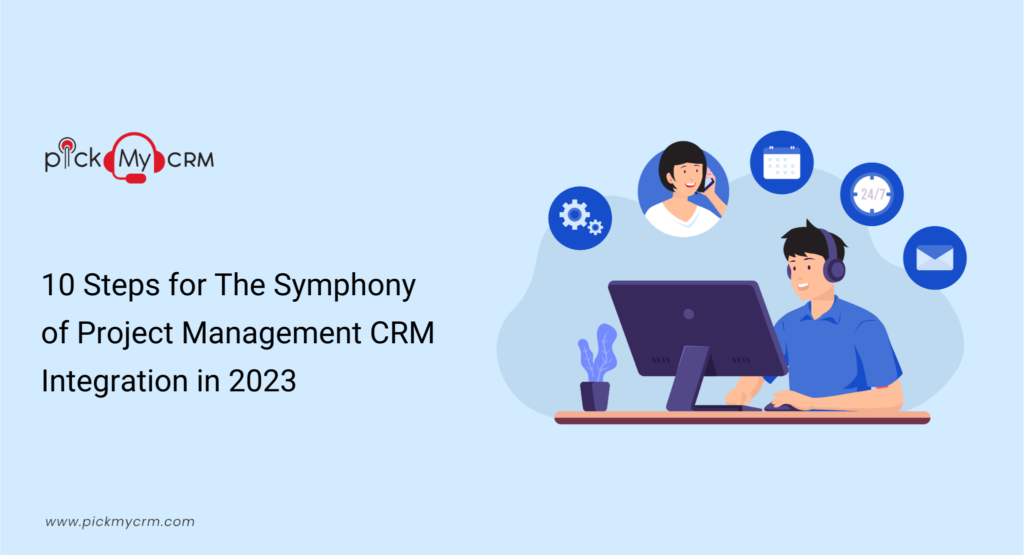What is Project Management CRM? A Definitive Exploration

Recent Stats and Insights
Before we delve deeper into the world of Project Management CRM (PM CRM), let's take a moment to reflect on some recent statistics and insights that underscore its growing importance in today's business landscape. According to a recent survey conducted by industry experts, the Adoption of Project Management CRM solutions has witnessed a staggering 35% year-over-year increase among businesses of all sizes. This surge can attributed to the Realization that Project Management CRM isn't just a tool but a strategic asset that can make or break project success. As businesses worldwide grapple with the challenges posed by the digital age, PM CRM has emerged as a beacon of hope, offering a structured approach to manage projects efficiently while simultaneously nurturing client relationships. In this comprehensive guide, we will continue to explore the multifaceted world of PM CRM, shedding light on its key features, benefits, and considerations.What is Project Management CRM?
Project Management CRM (Customer Relationship Management) is an innovative platform that combines two essential aspects of business operations: project management and customer relationship management. It Serves as a centralized hub where businesses can manage their projects, collaborate with team members, and simultaneously handle customer interactions, all within a single, integrated system. While CRM involves collecting customer data and nurturing relationships, CRM project management takes a step further by optimizing in-between initiatives to enhance overall efficiency. These initiatives span various areas Including,- Communication
- Task assignment
- Operations
- Resource management
- Collaboration between sales and marketing teams
- Customer feedback management
- Planning quarterly targets
- File storage.
Why Do Businesses Need Project Management?
Businesses rely on project management to bring structure and organization to their initiatives, which often have defined resources, timeframes, and objectives but lack coordination. Even individuals accustomed to chaos may find their workable systems perplexing to others. It is where project management, integrated into CRM Software, offers a solution to these challenges. Project management guarantees The Achievement of project goals within the specified time, budget, and scope. It Serves as a comprehensive guide, providing step-by-step instructions from inception to completion, akin to working with a template. With all essential information readily available, applying it to your project becomes seamless. Furthermore, project management facilitates evaluating the effectiveness of current approaches. When unforeseen issues arise, it provides alternative solutions, ensuring projects stay on track and reach their end goals. Rather than spoon-feeding, project management imparts efficient and effective project management skills, empowering businesses to execute projects proficiently and successfully. Key reasons project management is essential for any business include goal achievement, organized execution, resource optimization, risk management, improved communication, timely delivery, quality control, adaptability to change, customer satisfaction, continuous improvement, and strategic alignment. By blending these vital elements, project management becomes a fundamental tool for businesses to thrive and succeed in a competitive market.Is it possible to utilize a CRM for project management purposes?
Customer Relationship Management can Serve as a project management tool, particularly for smaller teams and Simpler projects. However, Customer Relationship Management systems may lack the extensive capabilities Found in dedicated project management software. By integrating Customer Relationship Management with project management tools, businesses can create a more comprehensive solution that combines customer relationship management with efficient project execution, optimizing their workflow and performance.How Project Management CRM Works?
Project Management CRM (Customer Relationship Management) is a sophisticated software solution that seamlessly integrates project management functionalities with tools for managing customer relationships. It Operates as a central hub where project managers, teams, and clients can collaborate, strategize, and execute projects effectively while maintaining strong client connections. Here's a closer look at how Project Management CRM works,Task Management
Project Management CRM enables efficient task creation, assignment, and tracking. These tasks are project-specific, including details like descriptions, deadlines, priorities, and dependencies. Team members maintain alignment with project goals by accessing and updating their Tasks in real-time.Client Relationship Management
Project Management CRM includes features for managing client information and interactions. It centralizes contact details, communication history, and any relevant notes. It enables businesses to provide personalized service, keep track of client preferences, and ensure timely responses to inquiries.Project Planning
Users can create detailed project plans within the CRM system. These plans typically include milestones, timelines, and resource allocation. Visual representations of project roadmaps help teams understand the project's scope and objectives, reducing misunderstandings and improving project management.Communication Tools
Effective communication is critical in project management. Project Management CRM often includes integrated communication tools like chat, email, and document sharing. Team members can collaborate in real time, sharing updates, files, and feedback, fostering better teamwork and coordination.Reporting and Analytics
Project Management CRM systems provide robust reporting and analytics tools. These tools allow users to track project progress, identify bottlenecks, and assess team performance. Data-driven insights help in making informed decisions to optimize project outcomes.Security
Data security is a top priority, and Project Management CRM systems employ robust security measures to protect sensitive information. It may include encryption, access controls, and regular data backups. In essence, Project Management CRM works by providing a centralized platform that combines project management tools and client relationship management features. It streamlines project execution, enhances collaboration, and fosters stronger client relationships, ultimately Contributing to improved efficiency and business success.Differences between CRM and project management software
CRM and project management software have distinct purposes, but they can complement each other to enhance collaboration and customer satisfaction. CRM software primarily Revolves around collecting and managing customer data, encompassing contact information, conversation history, and purchase records. Its functionalities are Designed for sales prospecting, lead tracking, email marketing, and customer relationship management. Conversely, project management software is Tailored to facilitate teams in achieving organizational objectives through task delegation, progress monitoring, and the generation of analytics reports. It typically includes Features like File storage, Time tracking, Task assignment, Project timelines, and Charter templates. While CRM has a specific focus and is well-suited for smaller teams or straightforward needs, project management software offers more versatility and Caters to a broader range of activities across different Teams.Benefits of Project Management CRM
- Efficiency: Streamlined workflows boost efficiency.
- Personalized Interactions: Centralized customer data enhances Personalized interactions.
- Real-time Tracking: Real-time project tracking ensures progress monitoring.
- Automation: Automated task assignment and workflow management.
- Customer Satisfaction: Improved customer satisfaction and relationship management.
- Data-driven: Data-driven decision-making with reporting and analytics.
- Minimized Delays: Enhanced Project Timeliness and Optimal Resource Management.
- Project Success: Increased project success rates and on-time delivery.
Features of Project Management CRM
- CRM's specific focus benefits small teams with straightforward customer management needs.
- Project management software offers versatile functionalities across multiple Teams and activities.
- Extensive Collaboration and Immediate Interdepartmental Information Sharing.
- Customization options optimize workflows for enhanced efficiency and productivity.
- AI Integration: Project Management CRM systems incorporate AI for predictive analytics, chatbots, and automated updates, enhancing efficiency and decision-making.
- Blockchain Security: Some systems use blockchain technology to bolster data security and transparency, addressing business data concerns.
What are the advantages and disadvantages of integrating CRM and project management?
Combining CRM and project management offers several benefits,- Better Data Management: Having customer data and project information in one platform streamlines data management and promotes cross-department alignment.
- Improved Deliverables: With access to customer feedback, teams creating products or services can enhance deliverables and customer satisfaction.
- Time and Cost Savings: Using a single tool reduces efficiencies in Communication and Saves time and money for the organization.
- Timeline Conflicts: Conflicts may arise when managing projects and customer interactions on the same platform, necessitating careful scheduling.
- Avoiding Information Gaps: Proper Handling of Customer Relationship Management and Project Management Integration.
- Unorganized Onboarding: Adequate training and onboarding are essential to ensure the smooth adoption of the combined software.
- Loss of Data: Migrating to an all-in-one solution requires meticulous data transfer to prevent the loss of important information.
The Dark Side of Project Management CRM
While Project Management CRM undoubtedly offers a Plethora of benefits, It's Essential to examine it from all angles. Let's delve into a unique perspective—potential challenges,- Resistance to Change: Introducing Project Management CRM into an organization may face Resistance from team members accustomed to traditional methods. Training and change management are essential to overcome this hurdle.
- Data Overload: With the wealth of data generated by PM CRM systems, there's a risk of data overload. Businesses must establish data management practices to avoid drowning in information.
- Cost Considerations: While the ROI of Project Management CRM is substantial, the initial cost of implementing and customizing the system can be a barrier for small businesses. It's essential to weigh the upfront investment against the long-term benefits.
The Use Cases of Project Management Tools
Project management tools exhibit versatility and indispensability across diverse industries and scenarios. Consider the following utilization scenarios,- Product planning and strategy
- Event management
- Inventory management
- Business process management
- Agile software development
- Project tracking
- Construction management
- Daily task management
- Issue/bug tracking
- Product road-mapping
- Sprint planning
- Cross-team collaboration
Best Project Management CRM Platforms in 2023
Wrike
Overview: Wrike is a comprehensive project management solution Designed for improved team collaboration, transparency, and task management. It offers data reporting tools and integrates well with Microsoft products. Pros: Strong data reporting tools, compliance and auditing features, good integration with Outlook and Microsoft Teams. Cons: The user interface lacks intuitiveness, and the app setup can be somewhat complex. Pricing- A Free Plan is accessible at no cost.
- The Professional Plan is priced at $9.80 per user per month when billed annually and is suitable for teams with 2-25 users.
- Business Plan: $24.80 per user/month (billed annually) for 5-200 users.
- Enterprise Plan: Requires contacting Wrike's sales team.
ClickUp
Overview: ClickUp is a comprehensive project planning and Tracking tool that emphasizes task management, collaboration, and project templates, all while offering a user-friendly onboarding process. Pros: Effective task management, shared team whiteboard for brainstorming, solid mobile apps, user-friendly onboarding. Cons: Free Plan limited to a single user, paid plans required for team collaboration, more affordable plans suitable for one team. Pricing- There's a Free Plan accessible for individual users.
- The Unlimited Plan is priced at $5 per user per month when billed annually.
- Business Plan: $12 per user/month (billed annually).
- Business Plus Plan: $19 per user/month (billed annually).
- Enterprise Plan: Requires contacting the vendor.
monday.com
Overview: monday.com is a project management app known for its neat interface, collaboration tools, and seamless workflow management. It is suitable for startups, small businesses, and freelancers. Pros: Neat interface, collaboration-focused, workflow streamlining, suitable for startups, small businesses, and freelancers. Cons: Mobile app termed "clunky," lacks desktop features, no call recording. Pricing- Individual Plan: Individual Plan: No cost for up to 2 users.
- Basic Plan: $11 per user/month (billed annually).
- Standard Plan: $14 per user/month (billed annually).
- Pro Plan: $22 per user/month (billed annually).
- Enterprise Plan: Requires contacting monday.com.



